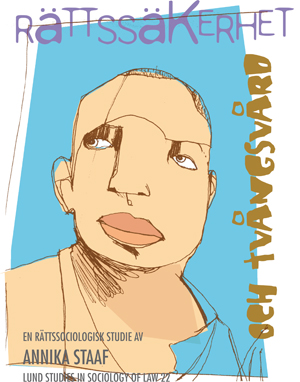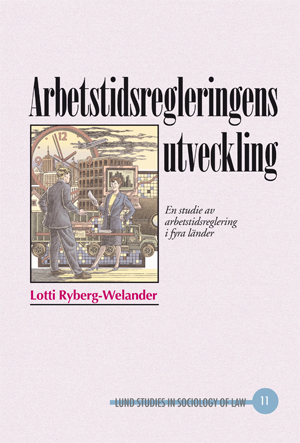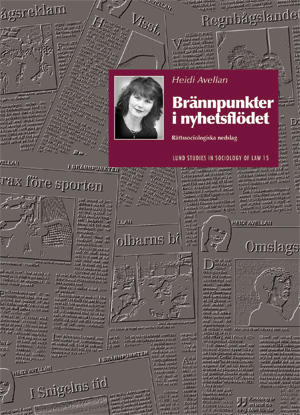Law in Progress
A Contextural Study of Norm-Generating Process - Teh Example of GMES
Anna-Karin Bergman
225 kr
Beskrivning
This PhD-thesis in Sociology of Law studies ”Law in Progress” by investigating norm-generating processes, which emerge through an interaction between actors over time. The thesis has an empirical approach, thus illustrates these processes through an empirical example, a European “Earth Observation” (EO) initiative: Global Monitoring for Environment and Security (GMES).
The main research questions dealt with are if GMES needs to be regulated and, if so, what areas need to be regulated. Th e thesis has produced two very interesting results: 1) the fi rst result shows that the norm-generating processes illustrate means towards a goal. In most cases norm-generating processes give rise to a goal, whereas in this thesis the norm-generating processes instead identifi es the means towards the goal of implementing GMES. By identifying the means towards the goal one is able to produce a future regulation which will mirror reality to a large extent, thereby providing a valuable link between the norm-generating processes and the future regulation; 2) the second result shows the important role played by technology. The result of the study shows that GMES currently consist of two parallel normgenerating processes, which seem to be separated because of diff erent values. One process upholds a “business perspective” which is based on economic values, while the other process upholds an “environmental management perspective” which has its foundation in research values. Both norm-generating processes have to be safeguarded in order for GMES to be implemented and legal regulations may assist in this process. A common denominator for actors adhering to the respective processes seems to be the interest in the technology (foremost Space infrastructure) and its generated information. The result of the study shows that a joint regulation of the technology and its generated data, especially of its utilisation, access (e.g. regulate who have the right to access and procedures around this issue) and data pricing (e.g. regulating pricing levels and the procedures regarding this issue), together can form one of the keys to providing a sustainable connection between the business- and the environmental management perspectives; and thereby is able to connect the two parallel norm-generating processes into a functioning system, GMES.
The thesis does not only bring about results vis-à-vis GMES, but also provide some future outlook. This outlook includes an introduction of Systems Analysis (SA) and systems dynamic (STELLA) in the investigation of norm-generating processes. With the introduction of these tools, one may be able to take the analysis of the norm-generating processes one step further and thereby feemingly provide a more dynamic image of the processes.
Ytterligare information
| Vikt | 437 g |
|---|---|
| Storlek | 14 × 155 × 220 mm |
| Språk | Engelska |
| Antal sidor | 232 |
| Publikationsår | 2009 |
| Bandtyp | Häftad |
| ISBN | 91-7267-284-6 |
| ISSN | 1403-7246 |
| Volym | 30 |





